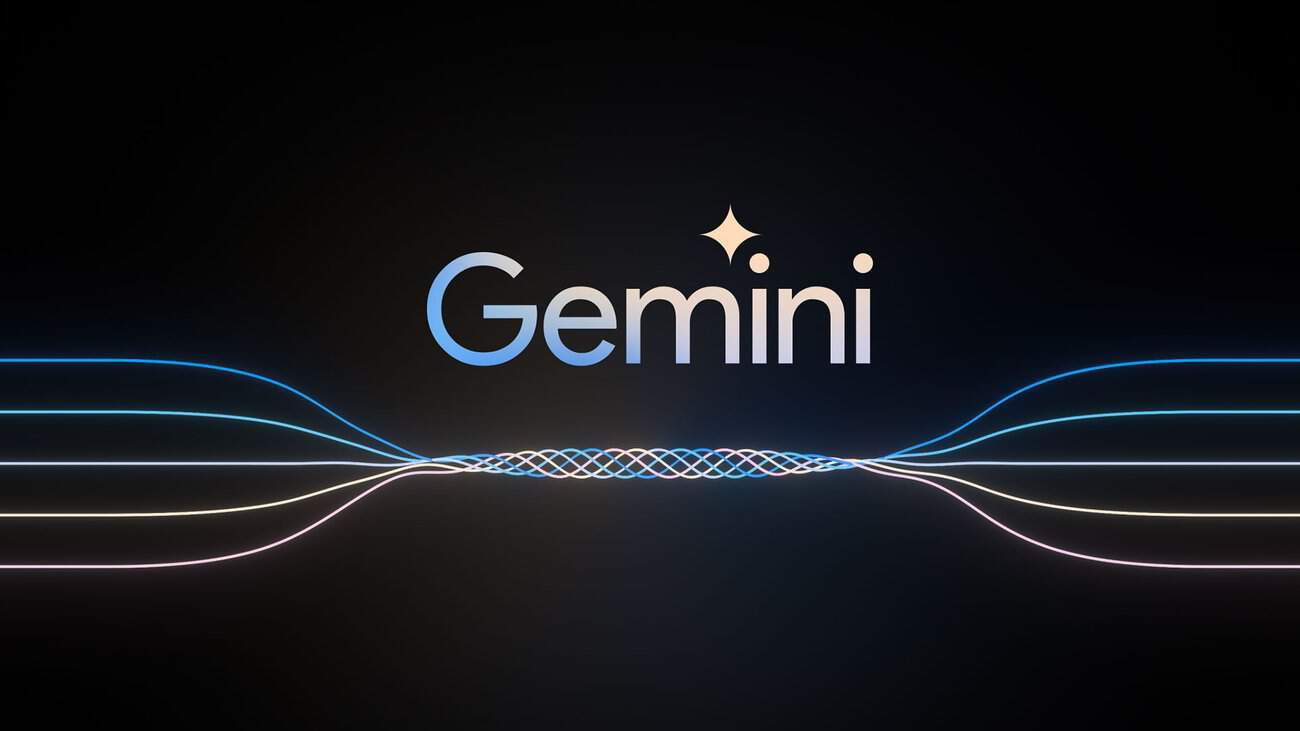Google’s latest AI offering, Gemini, brings advanced capabilities to users and developers. The cost structure for Gemini varies depending on the specific service and usage level. Google provides a free tier for developers to explore the API, with flexible pricing options as usage scales up.
For individuals, Google offers Gemini Advanced through its Google One AI Premium Plan. Priced at $19.99 per month, this subscription grants access to Google’s most capable AI model. Users can try the service with a two-month free trial before committing to the paid plan.
Businesses and developers have additional options. Google Cloud’s Gemini Code Assist is available at no cost for one user per billing account until November 8, 2024. After that, or for additional users, pricing starts at $19 per user per month for the standard tier and $22.80 per user per month for the premium tier.
Understanding Google Gemini Pricing
Google Gemini is a powerful AI tool. It can do many things. It can write different kinds of text. It can translate languages. It can answer your questions in a detailed way, even if they are open ended, challenging, or strange. Google offers Gemini in a few different ways. This can make it hard to understand the pricing.
Gemini Advanced
You can use Gemini Advanced through the Google One website. It gives you access to Gemini 1.5 Pro. This is Google’s newest AI model. It has a large context window. This means it can look at a lot of information at once. Gemini Advanced also gives you other benefits. You get more storage on Google Drive. You get other features in Google Workspace.
Gemini Advanced costs $25 per month.
Gemini for Google Workspace
You can get Gemini for Google Workspace. This gives you AI features in Google Workspace apps. You can use AI in Gmail and Google Docs. This can help you write better and faster.
Google Workspace has different plans. The cheapest plan is $6 per user per month.
Gemini for Google Cloud
You can use Gemini for Google Cloud. This is for businesses that need a lot of AI power. You can use Gemini to build your own AI applications.
Gemini for Google Cloud has a pay-as-you-go plan. You pay for what you use.
Gemini API
You can use the Gemini API. This lets you use Gemini in your own programs.
The Gemini API has a pay-as-you-go plan. You pay for what you use.
Which Option Is Right for You?
| Option | Price | Best For |
|---|---|---|
| Gemini Advanced | \$25 per month | People who want the newest AI model and extra Google Workspace features |
| Gemini for Google Workspace | Starts at \$6 per user per month | People who want to use AI in Google Workspace apps |
| Gemini for Google Cloud | Pay-as-you-go | Businesses that need to build AI applications |
| Gemini API | Pay-as-you-go | Developers who want to use Gemini in their own programs |
Think about what you want to use Gemini for. This will help you choose the right option.
Free Trial
You can try Gemini for free. Google offers a free trial of Gemini Advanced. This lets you try it before you buy it.
You can also use the Gemini API for free. You get a certain amount of free use each month.
More Information
You can find more information about Gemini pricing on the Google website here:
Key Takeaways
- Gemini offers a free tier for developers with flexible pricing for increased usage
- Individual users can access Gemini Advanced for $19.99 monthly through Google One AI Premium
- Business pricing for Gemini Code Assist starts at $19 per user monthly after the initial free period
Overview of Google Gemini
Google Gemini is an advanced artificial intelligence system developed by Google. It comes in three main versions: Ultra, Pro, and Nano. Each variant is designed for different use cases and computational needs.
Gemini can handle various tasks, including text generation, image analysis, and coding assistance. It’s a multi-modal AI, meaning it can work with different types of input like text, images, and audio.
The Pro version is available through Google’s Gemini API for developers building apps and services. Gemini 1.0 Pro was the initial release, followed by Gemini 1.5 Pro and Flash, offering improved capabilities.
Google offers a free tier of the Gemini API with lower rate limits for testing purposes. This allows developers to experiment with the technology without cost.
For broader consumer access, Google provides Gemini Advanced through its Google One AI Premium Plan. This subscription costs $19.99 per month and includes 2TB of cloud storage.
Gemini’s pricing structure varies based on usage and model complexity. The Gemini 1.5 Flash variant is notably cost-effective, making it suitable for high-volume applications like customer support chatbots.
Google AI Studio provides a platform for users to interact with Gemini models at no charge in supported countries. This offers an accessible entry point for individuals and businesses to explore AI capabilities.
Understanding Google Gemini
Google Gemini is a powerful artificial intelligence model developed by Google. It represents a significant leap in language understanding and generation capabilities, designed to handle a wide range of tasks.
Definition and Purpose
Gemini is Google’s most advanced large language model (LLM) to date. It’s built to process and generate text, analyze images, and work with various types of data. Gemini aims to enhance AI-driven applications across multiple domains, including customer support, content creation, and data analysis.
The model comes in different versions tailored for specific needs. Gemini Pro is used in Google’s Bard chatbot, providing improved reasoning and planning abilities. Gemini 1.5 Flash offers quick, cost-effective processing for high-volume tasks like handling support requests.
History and Evolution
Google introduced Gemini in late 2023 as a next-generation AI model. It builds on the company’s previous work in machine learning and natural language processing. Gemini represents a significant advancement over earlier models like BERT and LaMDA.
The development of Gemini reflects Google’s ongoing efforts to create more capable and efficient AI systems. It’s designed to compete with other leading AI models in the industry. Google has integrated Gemini into various products and platforms, making it accessible to developers and users through APIs and applications.
Gemini’s evolution continues, with Google regularly updating and refining the model to improve its performance and expand its capabilities.
Cost Structure of Google Gemini
Google Gemini offers a range of pricing models tailored to different user needs. The cost structure varies based on the specific tier and usage patterns.
Pricing Models
Google Gemini provides several pricing options. The free tier allows users to test the API with lower rate limits. For more advanced features, Gemini Advanced is available through the Google One AI Premium Plan at $19.99 per month. This plan includes access to Gemini 1.0 Ultra and additional tools in Gmail, Docs, and other services. Users also get 2 TB of cloud storage with this subscription.
For developers and businesses, Google offers usage-based pricing models. These are designed to scale with the needs of the project or application.
Average Cost Metrics
The cost of using Gemini varies depending on the model and usage volume. For high-volume applications, such as chatbots handling 10,000 support requests, Gemini 1.5 Flash is extremely cost-effective, with prices so low they’re almost negligible.
Gemini 1.5 Pro, while more expensive, still offers competitive rates for its capabilities. The exact costs can fluctuate based on factors like input and output tokens processed.
Cost Comparison with Other Platforms
When compared to other AI platforms, Gemini often emerges as a cost-effective choice. For instance, Gemini 1.5 Pro is generally less expensive than GPT-4 for similar tasks. This price advantage extends to both input and output token costs.
The introduction of Gemini’s 1M token context window at competitive rates has positioned Google as a strong contender in the AI market. This feature allows for processing larger amounts of text at once, potentially reducing overall costs for complex tasks.
Managing Campaigns on Google Gemini
Google Gemini offers powerful tools for running effective marketing campaigns. Proper setup, budget control, and optimization are key to maximizing results and reducing costs.
Setting Up Campaigns
Start by defining clear campaign goals. Choose between Gemini 1.5 Flash for quick, cost-effective tasks or Gemini 1.5 Pro for more complex needs. Select relevant audience targeting options based on demographics, interests, and behaviors.
Create compelling ad copy and visuals tailored to your target audience. Use Gemini’s AI-powered tools to generate eye-catching images and persuasive text in minutes. This speeds up the creative process and cuts production costs.
Set up conversion tracking to measure campaign performance accurately. Implement Google tags on your website to track important actions like purchases, sign-ups, or downloads.
Budget Management
Allocate your budget wisely across different campaigns and ad groups. Start with a conservative daily budget and adjust based on performance data. Gemini’s machine learning optimizes ad delivery to maximize conversions within your budget constraints.
Use automated bidding strategies like Target CPA (Cost Per Acquisition) or Target ROAS (Return On Ad Spend) to let Gemini’s AI adjust bids in real-time. This helps achieve better results while controlling costs.
Monitor spend closely and set up alerts for budget pacing. Regularly review cost per click (CPC) and cost per conversion metrics to ensure efficient spending.
Optimization Strategies
Leverage Gemini’s AI-powered insights to identify top-performing ads and keywords. Use A/B testing to compare different ad variations and improve click-through rates. Gemini’s machine learning drives an average 20% increase in conversions while reducing acquisition costs by 15%.
Regularly review search term reports to find new keyword opportunities and negative keywords to exclude. Optimize landing pages for better conversion rates by aligning content with ad messaging.
Use Gemini’s automated recommendations to fix campaign issues and uncover new opportunities. These AI-generated suggestions help improve campaign performance without manual analysis.
Implement audience segmentation to tailor messaging and bids for different customer groups. Use remarketing lists to re-engage past visitors with personalized ads.
Reporting and Analytics
Google Gemini offers tools to track usage and analyze performance. These features help users understand costs, optimize resource allocation, and improve AI-driven processes.
Performance Metrics
Gemini provides detailed usage data through the Firebase console. Users can monitor API calls, response times, and error rates. The Usage and Billing dashboard displays costs associated with Vertex AI Gemini API usage. This information helps teams track expenses and identify areas for optimization.
Google Cloud integrates Gemini metrics with existing monitoring tools. Users can set up alerts for unusual activity or approaching usage limits. Custom dashboards allow visualization of key performance indicators (KPIs) specific to each project.
Interpreting Data Insights
Gemini’s analytics tools offer valuable insights into AI model performance. Users can compare different versions of their models to identify improvements or regressions. The platform provides metrics on model accuracy, latency, and resource consumption.
Data visualizations help teams spot trends and patterns in Gemini usage. This information guides decision-making about scaling resources or fine-tuning models. Google Cloud’s AI Platform offers additional tools for in-depth analysis of model behavior and output quality.
By leveraging these analytics capabilities, organizations can make data-driven decisions about their Gemini implementations. Regular review of performance metrics ensures efficient use of AI resources and helps control costs.
Integration with AI and Automation
Google Gemini’s AI capabilities enhance advertising effectiveness and streamline campaign processes. These features aim to boost efficiency and results for businesses using the platform.
The Role of AI in Advertising
Gemini’s AI analyzes vast amounts of data to identify trends and patterns in user behavior. This helps create more targeted ads that resonate with specific audiences. The system learns from past campaigns, continually improving ad performance over time.
AI-powered tools in Gemini can generate ad copy and suggest keywords based on campaign goals. This saves time and often produces better results than manual methods. The platform also uses AI to optimize ad placements, showing ads when and where they’re most likely to convert.
Gemini’s AI can predict which ads will perform best for different segments. This allows businesses to allocate budgets more effectively, focusing spend on high-potential areas.
Automating Campaign Processes
Gemini automates many time-consuming tasks in ad management. The system can adjust bids in real-time based on performance data, ensuring optimal use of ad budgets. It also automatically pauses underperforming ads and scales successful ones.
Campaign reporting is streamlined through automated data collection and visualization. Gemini generates easy-to-understand reports highlighting key metrics and trends. This helps businesses quickly spot areas for improvement.
The platform can automatically create ad variations for testing. It then analyzes results to determine the most effective elements, refining campaigns without manual intervention. Gemini also automates audience targeting, adjusting segments based on engagement data to reach the most receptive users.
Best Practices for Google Gemini
Implementing Google Gemini effectively requires careful planning and execution. These best practices focus on maximizing the platform’s capabilities while ensuring compliance and optimal results.
Creative Strategies
Use Gemini’s advanced language understanding to craft compelling content. Start by clearly defining your goals and target audience. Experiment with different prompt styles to find what works best for your needs.
Try:
- Asking open-ended questions
- Providing context and examples
- Using step-by-step instructions
Refine prompts based on results. Keep a log of successful prompts for future reference. Regularly update your approach as Gemini’s capabilities evolve.
Leverage Gemini for brainstorming sessions. Generate multiple ideas quickly, then refine and combine the best concepts. Use the tool to expand on initial ideas, adding depth and detail to your projects.
Targeting and Segmentation
Tailor Gemini’s outputs to specific audience segments for better engagement. Research your target groups thoroughly. Consider factors like:
- Demographics
- Interests
- Pain points
- Communication preferences
Use this information to craft prompts that generate relevant content. Test different approaches with small audience samples before scaling up.
Create user personas to guide your targeting efforts. Use Gemini to generate detailed profiles based on your research. Refine these personas over time as you gather more data on user interactions and preferences.
Compliance and Legal Considerations
Stay informed about Google’s usage policies for Gemini. Review terms regularly, as they may change. Implement internal guidelines to ensure all team members use the tool responsibly.
Key areas to monitor:
- Data privacy
- Intellectual property rights
- Content moderation
Set up approval processes for Gemini-generated content before publication. Train staff on recognizing and avoiding potential legal issues. Consider having legal experts review high-stakes or sensitive outputs.
Use content filters and safety settings provided by Google. These help prevent the generation of harmful or inappropriate material. Regularly audit your Gemini usage to identify and address any compliance gaps.
Conclusion
Google Gemini’s pricing structure offers flexibility and cost-effectiveness for various use cases. The platform provides a free tier, making it accessible to developers and small-scale projects. For larger applications, Gemini’s paid options remain competitive in the AI market.
Gemini 1.5 Flash stands out for its affordability, especially for chatbot applications. It can handle 10,000 support requests at a negligible cost. Gemini 1.5 Pro, while more expensive, still presents a budget-friendly choice for advanced features.
When compared to OpenAI’s GPT-4, Gemini 1.0 Pro demonstrates significant cost advantages. Its input and output token prices are over 98% lower, making it an attractive option for cost-conscious users.
Google One AI Premium Plan, priced at $19.99 per month, grants access to Gemini Advanced. This subscription includes a two-month free trial, allowing users to test the enhanced capabilities before committing financially.
As Google continues to integrate Gemini into its search functionality, the company may face increased operational costs. Estimates suggest this integration could result in an additional $3 billion in expenses by 2024.
For businesses and developers considering AI solutions, Gemini’s pricing model offers a balance between performance and affordability. Its tiered approach allows for scalability as project needs grow.
Frequently Asked Questions
Google Gemini’s pricing structure includes various options tailored to different user needs. The costs vary based on features, usage levels, and access to advanced capabilities.
What is the pricing structure for Google Gemini’s API?
Google hasn’t publicly disclosed specific API pricing for Gemini. Costs likely depend on usage volume and model complexity. Developers should contact Google directly for current API pricing details.
How does Google Gemini’s subscription pricing compare to similar products?
Gemini Advanced costs $19.99 per month. This price point is competitive with other AI assistants. The subscription includes access to Gemini 1.0 Ultra and integration with Google Workspace apps.
Are there different tiers of pricing for the Gemini product range?
Yes, Google offers multiple Gemini tiers. The free plan provides access to Gemini Pro for basic tasks. Gemini Advanced, at $19.99 monthly, offers more powerful features and capabilities.
What are the costs associated with the Gemini 1.5 Pro version?
Google hasn’t released specific pricing for Gemini 1.5 Pro. As an upgraded version, it may have different costs than earlier models. Users should check Google’s official channels for the most up-to-date information.
Does Vertex AI offer a Gemini pricing plan and what are its details?
Vertex AI likely includes Gemini models, but Google hasn’t shared specific Gemini pricing for this platform. Vertex AI typically uses a pay-as-you-go model based on compute resources and API calls.
Can you provide details on the cost implications of upgrading to Gemini Advanced?
Upgrading to Gemini Advanced costs $19.99 per month. This fee grants access to Gemini 1.0 Ultra and enhanced features in Google Workspace apps. Users gain improved AI capabilities for various tasks across Google’s ecosystem.







